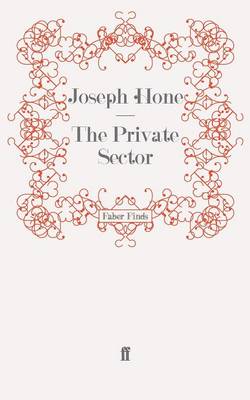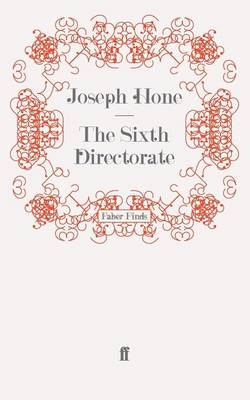A Peter Marlow spy thriller
4 total works
Though he once worked with British Intelligence, Peter Marlow now believes he has left behind the insane world of espionage, and found a haven in the Cotswolds with his wife and step-daughter. But when gunfire shatters the night he realizes his new life of calm is short-lived. As Marlow runs for cover into the nearby woodland, he finds himself in a landscape that has become suddenly venomously hostile. And when sinister vengeance from Africa reaches deep into rural England, he must turn savage to rescue his terrified step-daughter and make good his escape. This is a thrilling 'chase' novel in the tradition of Geoffrey Household's "Rogue Male". 'Spell-binding' - "Sunday Times". 'A carefully thought-out psychological novel ...the writing is of such strength' - Martyn Goff, "Daily Telegraph". "Valley of the Fox" is the third in the much-praised "Peter Marlow" series, the others being "The Private Sector", "The Sixth Directorate" and "The Flowers of the Forest": all have been reissued in Faber Finds.
It is an idyllic setting: the forest sweeping down to the valley, sunlight on the loch, the heather loud with bees: but one hive stands dismantled and a man has vanished. That man is Lindsay Phillips, head of a section of the Secret Service. Peter Marlow, restless in his Cotswolds retreat, thinks he has left the world of espionage behind him, but sudden unexpected pressures lead him to take up the search for Phillips. He is short of money; colleagues from the shadows of the past are persuasive; above all, he owes an intricate debt to the family, to recollections of his own childhood. Marlow is instantly caught up in a web of violence and intrigue that embraces Downing Street and anonymous hired killers, runs from domestic deceit to political kidnapping. As the search leads unpredictably from Scotland to Oxford, from Belgium to Eastern Europe, Marlow finds that his journey signposted by death and by forgotten betrayals, is a voyage into his own past, a voyage into the painful recesses of public, private and clandestine treason.
'This is the best thriller I've found in years, perhaps the best I remember; too serious and rich for the word thriller and what it implies though sticking closely to the thriller genre: a novel about the mysteriousness of human beings rather than the mysteries of intelligence and diplomacy. The weaving of the story is so close, so tight, that no image, no hint is ever wasted: everything links up with something else ...Above all there's a sense of densely packed layers of memory and interconnected experience: in families, in friendships, among colleagues, lovers, even spouses; and of secrets even among the closest, the impossibility of knowing the truth - with ultimate, total exactness - about anyone' - Isabel Quigly, "Financial Times". 'A densely-textured, subtle and allusive novel; a pleasure to read' - "Times Literary Supplement". 'A galloping plot ...thoroughly British in tone and outlook.' Guardian 'Mr Hone writes Len Deighton into the ground ...goes roaring confidently up to the front line' - "New Statesman".
'This is the best thriller I've found in years, perhaps the best I remember; too serious and rich for the word thriller and what it implies though sticking closely to the thriller genre: a novel about the mysteriousness of human beings rather than the mysteries of intelligence and diplomacy. The weaving of the story is so close, so tight, that no image, no hint is ever wasted: everything links up with something else ...Above all there's a sense of densely packed layers of memory and interconnected experience: in families, in friendships, among colleagues, lovers, even spouses; and of secrets even among the closest, the impossibility of knowing the truth - with ultimate, total exactness - about anyone' - Isabel Quigly, "Financial Times". 'A densely-textured, subtle and allusive novel; a pleasure to read' - "Times Literary Supplement". 'A galloping plot ...thoroughly British in tone and outlook.' Guardian 'Mr Hone writes Len Deighton into the ground ...goes roaring confidently up to the front line' - "New Statesman".
With The Private Sector (1971) Joseph Hone introduced readers to British intelligence officer Peter Marlow, who would be the protagonist of three further novels - all now reissued in Faber Finds. Cairo, May 1967: Marlow is sent from London to find his friend and fellow spy Henry Edwards, who has vanished. In the course of this fool's errand he also finds his former wife, Bridget, now deeply entangled with Edwards. Marlow moves easily between British and Egyptian intelligence branches, attaching allegiance to neither - until he becomes the unwitting victim of a failed plot to topple Nasser. "An absolutely terrific espionage novel". (James Dickey). "A brilliant and calculated spy story...[Hone's] characters and the quality of the writing are so good that he has transcended the usual limitations of the genre." (Times Literary Supplement).
The Sixth Directorate (1975) was the second of Joseph Hone's quartet of 'Peter Marlow' spy novels, all now reissued as Faber Finds. In prison his name had been Marlow. When British Intelligence released him to impersonate a dangerous KGB agent, he became George Graham, a man with an incredible past and a highly questionable future. But even the British didn't know everything about Graham, as Marlow discovered. Then he came face-to-face with Graham's mistress and thought the game was up. But it was just beginning..."Intelligent, sharp and deviously plotted...Here is a new force in the field of spy stories". (Daily Telegraph). "One of the best suspense novels of the last ten years. It has elegance, wit, sympathy, irony, surprise, action, a rueful love affair and a melancholy 'Decline of the West' mood." (New York Times).


